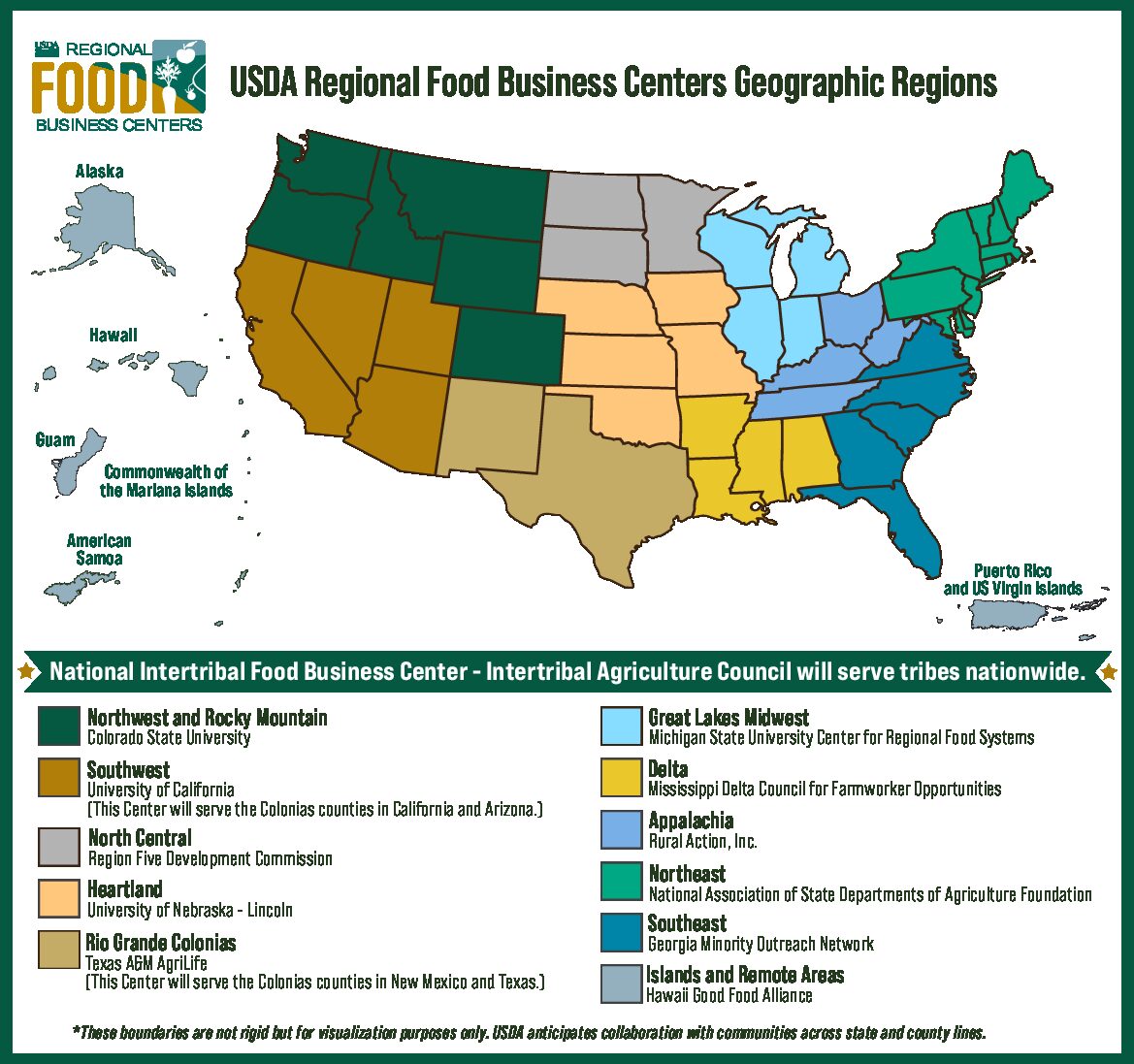 The Food Corridor is excited to announce our key partnership in the newly announced Northwest and Rocky Mountain Regional Food Business Center. The Food Corridor and the Network for Incubator and Commissary Kitchens will co-lead the theme priority of Connecting and Scaling Food Entrepreneurs with the OSU Food Innovation Center.
The Food Corridor is excited to announce our key partnership in the newly announced Northwest and Rocky Mountain Regional Food Business Center. The Food Corridor and the Network for Incubator and Commissary Kitchens will co-lead the theme priority of Connecting and Scaling Food Entrepreneurs with the OSU Food Innovation Center.
As an organization, we have a rich history of collaborating and coordinating partners in the Northwest and Mountain regions to better coordinate farm, food business, and food supply chain efforts, including technical assistance and capacity building. In particular, we are positioned to develop, refine, and frame a variety of delivery approaches, and evaluate food business development courses, workshops, and other technical assistance activities for Connecting and Scaling Food Entrepreneurs, which was identified by this regional center. We intend to use this Center to expand our current activities and continue to fortify our strong existing linkages and history of delivering programs alongside partners who focus on small business owners, women and minority-owned businesses, and rural communities.
Co-led by Colorado State University and Oregon State University, the Northwest and Rocky Mountain Regional Food Business Center will work across the western states of Colorado, Idaho, Montana, Oregon, Washington, and Wyoming. The Northwest and Rocky Mountain Regional Food Business Center will serve as a central node for the region’s small and mid-tier food and farm business and local and regional food sector development initiatives by supporting cross-regional collaboration, providing, and analyzing relevant and timely data, and serving as a gateway for USDA programs and other third-party funding opportunities.
The Northwest and Rocky Mountain Regional Food Business Center will support farm, ranch, and food businesses, as well as broader supply chain development through technical assistance, capacity building through direct investment, staff capacity, and information resources and coordination via strategic sharing and coordinated action. The Center plans to provide foundational business development support for small and mid-sized farm and food businesses participating in local and regional food sectors. Our programs will focus on four themes that are high-priority for our region:
-
- resilient animal protein supply chains
-
- connecting and scaling food entrepreneurs
-
- expanding and diversifying markets for climate-resilient agricultural products, and
-
- right-sizing infrastructure and investment.
One regional leadership team, six state teams (Colorado, Idaho, Montana, Oregon, Washington, and Wyoming), the four theme teams, and a cohort of food sector leaders from underserved audiences will help to frame and engage with all initiatives and provide shared governance at all levels of the center. Together these teams will guide technical assistance, coordination, and capacity-building efforts. Over a quarter of the Center’s resources will be allocated to Business Builder awards for farm or food businesses that need capital to launch and expand their businesses.
Center leads: Colorado State University, Oregon State University
Partners & Collaborators:
Regional/multi-state: Tahoma Peak Solutions, Network of Incubators and Community Kitchens, Niche Meat Processor Assistance Network, Rocky Mountain Farmers Union, Luna Bird, Food Corridor
Colorado: Colorado Department of Agriculture
Oregon: Oregon Department of Agriculture, OSU Food Innovation Center, Oregon Community Food Systems Network and Oregon Food Hub Network
Idaho: University of Idaho, FARE Idaho, Sun Valley Institute, Arrowleaf Consulting Group
Montana: Montana Department of Agriculture, Montana State University
Washington: Washington State University, Washington State Department of Agriculture
Wyoming: University of Wyoming, Central Wyoming College
USDA Regional Food Business Centers
In September 2022, USDA announced $400 million to fund this initiative and 12 organizations were selected to lead efforts in their region and together serve all areas of the country. The Regional Food Business Centers will support producers by providing localized assistance to access a variety of markets, including linking producers to wholesalers and distributors. By strengthening connections between rural and urban areas, the Regional Food Business Centers will drive economic opportunities across the region, creating a more diversified and resilient food system. Collectively, the organizations selected to lead each Center reflect an impressive cross-section of the varied institutions, organizations, and associations that must cooperate to achieve genuinely strong and distributed food systems. These organizations are engaging with grassroots food and farm organizations and employing a range of creative strategies to build food system resiliency. Regional Food Centers will target their work to historically underinvested communities in their region.

You can read more about the twelve finalists here.
